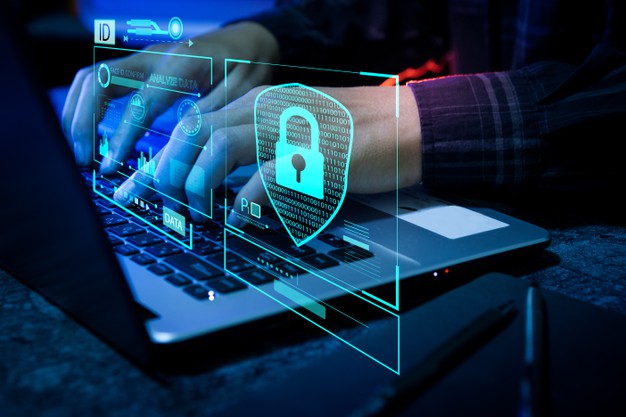There are several steps you can take to ensure your company’s data is secure while employees working remotely.
Whether they work on company laptops or access data from their personal devices, it is important to follow a set of protocols to help prevent a breach in company data.
5 Ways to Secure Data When Employees Working Remotely
1. Adopt a Cybersecurity Policy
Although you most likely already have an in-office procedure set up, you should also implement a more in-depth cybersecurity policy for you and your staff to follow whenever accessing company data remotely.
This policy should define the protocols everyone is expected to comply with and what the company will do to provide the necessary support. Provide the tools and resources they require to adhere to this policy.
Many businesses fail to understand that a cybersecurity policy should be more about the entire lifecycle management of an organization’s data. This includes taking care of secure data destruction when the organization no longer requires to keep its old data.
2. Setup the Right Network Solution
When it comes to cybersecurity networking solution is the primary concern for companies. How it’s configured and set up can help prevent a data breach.
Setting up a firewall, proxy server, encryption, and monitoring of traffic and flagging of anything suspicious is very important for an optimally secured network. Ensure that the hardware fits the needs of the company and is updated regularly.
3. Secure WiFi
While employees work remotely, it is important that the WiFi connection they are on is secure. Show your employees how to set up a password for their home network if they do not yet have this in place.
Explain the risks of accessing company files via a public network, such as those in a cafe or library. Although it may not always be possible it is important to make them understand the vulnerability of a non-secure WiFi connection.
4. Set up firewalls
Instruct staff to set up firewalls on their devices or wherever they access company files or emails. Firewalls enhance the security of any device connected to a network and helps prevent unauthorized access.
Antivirus and antispyware software will help in monitoring suspicious activity and prevent phishing and malware.
5. Regular Data Backups
It is best to get into the habit of routinely backing up data regardless of whether employees work in the office or remotely.
Data loss happens often so ensure the entire team is regularly backing up their work and have the ability to recover duplicated versions if necessary. Teach employees to set up simple ways to automatically back up their work.
Also Read:
